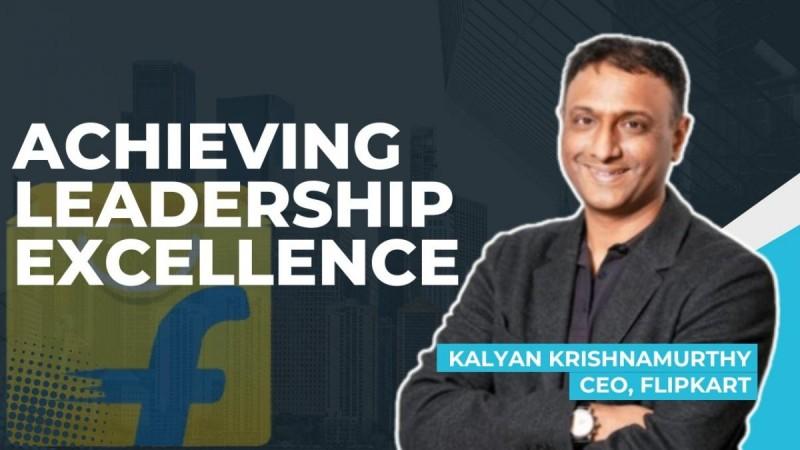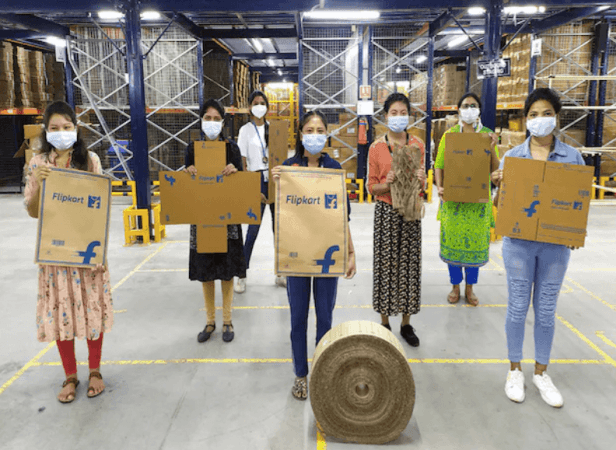
Kalyan Krishnamurthy's tenure as CEO of Flipkart has not only marked a period of significant growth for the company but also earned him the prestigious IBT CEO award. This accolade sets the context for exploring how Flipkart, under Krishnamurthy's leadership, is revolutionizing the e-commerce segment while balancing community-building and profitability.
In 2007, India's virtual landscape was vastly different. Sure, Google existed, but nothing like how it does today. High-speed internet, 4G, and unlimited data were terms yet to debut in the public sphere and online shopping was frowned upon. The idea of online shopping met not just with ardent criticism, but a very generous dose of pessimism. Who's going to buy online when people can just walk into a store, see live demonstrations, and experience things before deciding to spend?
This was not going to work in India, after all, they are people with the famous Indian penchant for 'touching and feeling things' before buying them. But shrugging off sarcasm, laughs and raised brows, founders Sachin Bansal and Binny Bansal went ahead and launched Flipkart in 2007. An e-commerce website today headquartered in Bengaluru has stupendous success, a steep rise and a successful business model to look back on.
Kalyan Krishnamurthy takes over as CEO
It is not easy taking over the reins of a company that boasts over 100 million registered users, 100+ thousand sellers, and over 21+ state-of-the-art warehouses. It also boasts about 10+ million daily page visits and over 8 million shipments per month. These incredible numbers that would have been unimaginable back in the day.
However, when Kalyan Krishnamurthy took over as the group CEO in 2017, the online space had already become unrecognisably competitive. Responsible for driving growth and operations across the country, he further propelled the company by focusing on the consumer shopping experience, ad retail, voice assistants and regional language interfaces. Sensing the need to constantly innovate, he expanded the company into significant new categories like grocery and fintech.
By 2022, Flipkart clearly had transformed into a company that was not merely looking at just being a retail giant delivering everything from laptops to shoe laces. By 2022, Cleartrip was acquired and Shopsy was launched, along with Flipkart Health+. While eKart and Jeeves go B2B, Flipkart Foundation also was launched, apart from Green e-store and Samarth Krishi.
Shopsy is a zero commission pan India marketplace with 1300+ categories of products and Flipkart Health+ offers genuine, reliable medicines and healthcare products in sync with the needs of the times. The company is clearly eyeing a bigger piece of the pie, with eyes on the bigger picture.
Nation building, a role starkly missing from other e-commerce giants in the market, is a part of the company's integral portfolio.
Sustainability efforts
Flipkart Group has pledged to reduce 100 per cent of emissions from its operations by 2030 and work with sellers, consumers, and partners to achieve Net Zero emissions by 2040. The company has defined a clear decarbonization pathway, focusing on increasing energy efficiency at its corporate office and supply chain facilities and powering its operations through renewable sources such as solar.

Flipkart's sustainability initiatives also addressed the biggest pain point in the e-commerce sector the right way by tackling the menace of excessive packaging way back in 2021. The e-commerce giant vowed to eliminate single-use plastic from its packaging and adopted sustainable alternatives across its supply chain by introducing scalable sustainable alternatives such as eco-friendly paper shreds, replacing poly pouches with recycled paper bags, replacing bubble wraps with carton waste shredded material and 2-Ply rolls.
Grocery business milestone
In May, Flipkart announced a significant milestone in its grocery business, recording 1.6X year-over-year growth. This achievement underscores Flipkart's commitment to providing a premier online shopping experience across India, offering a wide selection of daily essentials at competitive prices and convenience. As a customer-first organization, Flipkart Grocery ensures the provision of fresh produce at affordable prices, with transparency in manufacturing and expiration dates.
The company is expanding its reach in Tier 2 and beyond cities across India, driven by consumer demand in locations such as Aurangabad, Bankura, Bokaro, Chhatarpur, Guwahati, Jamshedpur, Krishnanagar, and Visakhapatnam.
Advanced supply chain
A powerful supply chain is essential for a sustainable business model. Flipkart's tech-enabled supply chain network enables the delivery of millions of shipments daily, efficiently serving customers even in the remotest parts of the country. This network also helps sellers control and anticipate delivery timelines, reducing returns and enhancing customer experience.
Earlier this year, Krishnamurthy discussed testing Flipkart's own offering on the Unified Payments Interface with a closed user group, paving the way for the firm to enter the digital payments sector. He emphasizes innovation and expansion, along with the significance of talent and values in the workplace. Flipkart's inclusive FlexBen policy covers LGBTQAI+ employees and their partners and employs individuals from diverse socio-economic backgrounds and people with disabilities.
Kalyan Krishnamurthy, with an MBA from the Asian Institute of Management, Philippines, has driven meaningful change at Flipkart through sustained efforts. His vision and leadership have made him a disruptive force, balancing innovation with community building.
















